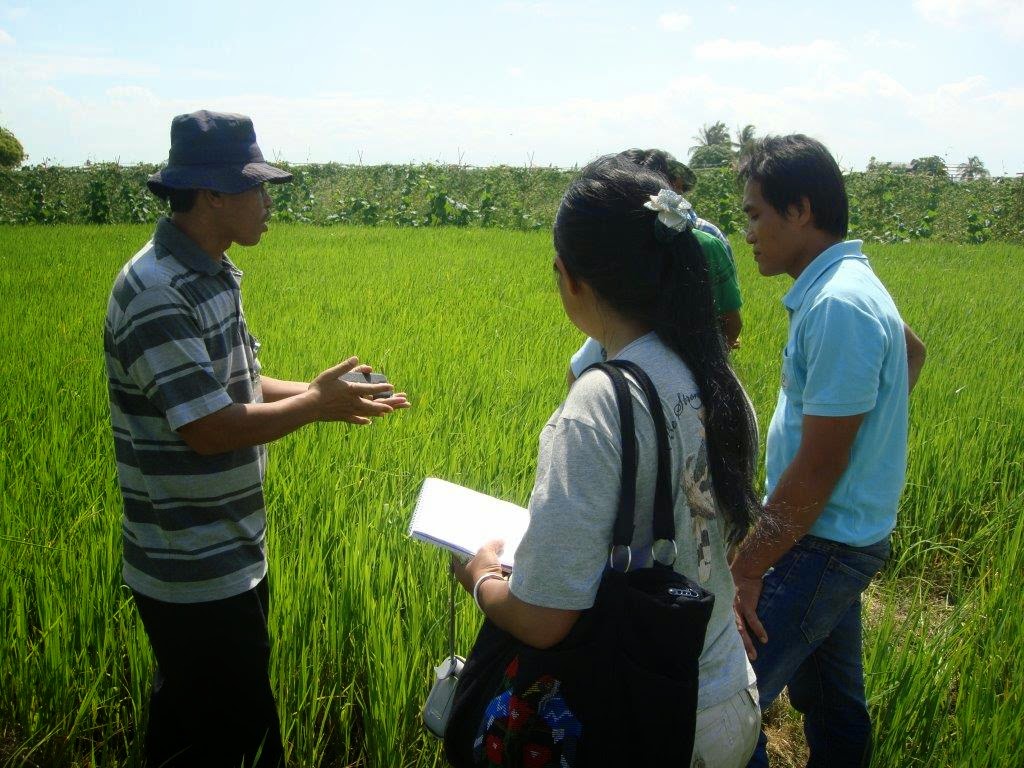The final day of SATNET
field visits focuses on markets and farmer field schools
 The final day of SATNET intraregional visit for smallholder
value chain actors in Thailand was devoted to visiting
the Si-Moom-Muang fruit and vegetable wholesale market in Bangkok. This market
has been in operation for 30 years and is currently among the largest wholesale
markets in Thailand, handling about 20,000 buyers/sellers and 4 million tons of
produce every day. The market is run by a private company whose senior
management welcomed SATNET participants and explained about the functioning of
the market in detail. An interactive session that followed enabled the
participants to obtain more information about various aspects of marketing of
agricultural produce.
The final day of SATNET intraregional visit for smallholder
value chain actors in Thailand was devoted to visiting
the Si-Moom-Muang fruit and vegetable wholesale market in Bangkok. This market
has been in operation for 30 years and is currently among the largest wholesale
markets in Thailand, handling about 20,000 buyers/sellers and 4 million tons of
produce every day. The market is run by a private company whose senior
management welcomed SATNET participants and explained about the functioning of
the market in detail. An interactive session that followed enabled the
participants to obtain more information about various aspects of marketing of
agricultural produce.
Subsequently, the participants visited the market’s pesticide
residue testing laboratory, which is important for ensuring quality control
over the produce sold in the market, as well as the selling area spread over a
vast space, and the waste recycle facility. They were able to see how various
units are integrated with each other, and how coordination of the activities
allows for smooth transaction of daily market business.
 In the afternoon, the participants attended a practical Farmer Field
School session for rice conducted with the assistance of the Department of
Agricultural Extension in Ayuddhaya
province. During the session, it was explained that a participatory approach is
adopted to prioritize the problems faced by local farmers, identify their causes,
plan field experiments to test potential solutions, and finally arrive at the
actions to implement to solve the problems.
In the afternoon, the participants attended a practical Farmer Field
School session for rice conducted with the assistance of the Department of
Agricultural Extension in Ayuddhaya
province. During the session, it was explained that a participatory approach is
adopted to prioritize the problems faced by local farmers, identify their causes,
plan field experiments to test potential solutions, and finally arrive at the
actions to implement to solve the problems. 
As part of the session, participating lead farmers presented the results of ongoing field trials hosted by them for testing various varieties of rice, embodying the ‘farmers as researchers’ concept. The participants also visited the site of the trials and got a valuable opportunity to interact with the local farmers to understand their approach.









